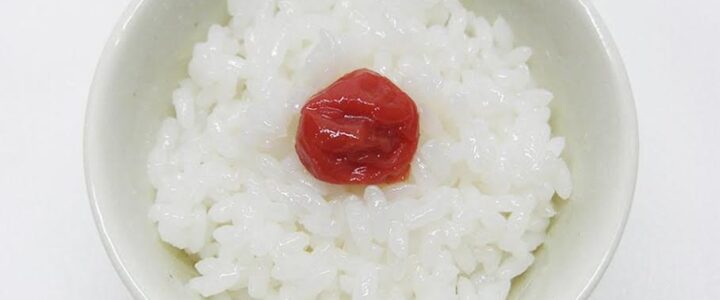Japanese Umeboshi plums or pickled plums are not truly plums, technically though they are part of the plum family.
Umeboshi are actually a pickled Japanese delicacy made from a small fruit called ‘Ume’.
The Ume fruit remains on the tree until it’s an apricot colour indicating it is ripe.
Once ripe they will be pickled in brine with shiso leaves.
These leaves are high antioxidants and iron, they also give the umeboshi their pink colour.
The plums are then layed out on bamboo racks to dry. This process will be repeated a number of times.
This fruit is like the hybrid of an apricot and a plum.
These delicacies are immensely popular in Japan, not only for their taste but because of their many health benefits.
Over 2000 years ago China was using umeboshi for illness’ such as fever, oral problems, nausea, digestive disorders and coughs.
Eventually adopted by Japan around 1000 years ago and still eaten there today.
Such is the regard for this “superfood” that it was a staple part of Samurai warriors’ diets throughout the Middle Ages due to its ability to encourage healing & combat fatigue.

Umeboshi is usually served with rice to add zest or eaten as an snack with tea.
The antibacterial properties are thought to prevent the rice becoming tainted for longer.
It’s also used in casserole-style dishes to enhance overall flavor, in salad dressings and as a condiment.
A scientific study in 2011 looked explicitly at the correlation between umeboshi and how it impacted on the bacteria in the mouth.
The findings stated that umeboshi had a strong anti-bacterial effect against Streptococcus mutans, a bacteria closely linked to dental cavities.
The scientists who conducted the study concluded that umeboshi would be beneficial for treating and preventing a range of oral problems, from cavities to bleeding gums.
Helicobacter pylori are spiral-shaped bacterial organism that grows in the digestive tract and have a tendency to attack the stomach lining.
This bacterium is thought to cause ulcers and chronic gut inflammation and is normally treated with multiple strong courses of antibiotics.
Umeboshi has an anti-inflammatory effect on these painful health problems as well as lowering levels of H. pylori.
Studies have suggested its use as both a preventative and treatment for these conditions.
A recent study found that extracts of umeboshi had both tumor-inhibiting and anti-inflammatory effects.
They noted particularly good results for melanomas with the extract working on reactions in the body that inhibit the development and progression of tumors.
Research has managed to isolate over 20 different antioxidant compounds from umeboshi plums, proving they have excellent antioxidant value.
The Japanese currently use umeboshi to help the body detoxify.
Many use it to get rid of a hangover from a heavy night of drinking.
The fruit has also been eaten as a general health tonic and to give people a burst of energy.
Superfood like the Umeboshi might be a little harder to find than a carrot or potato but is defiantly worth the effort.
Ele Naturale


